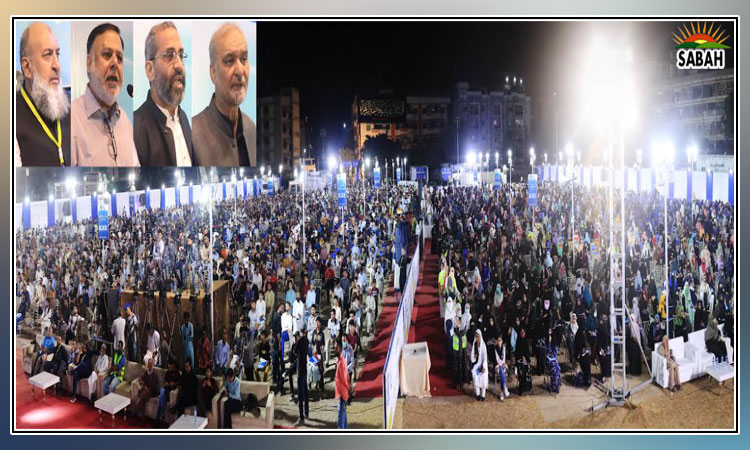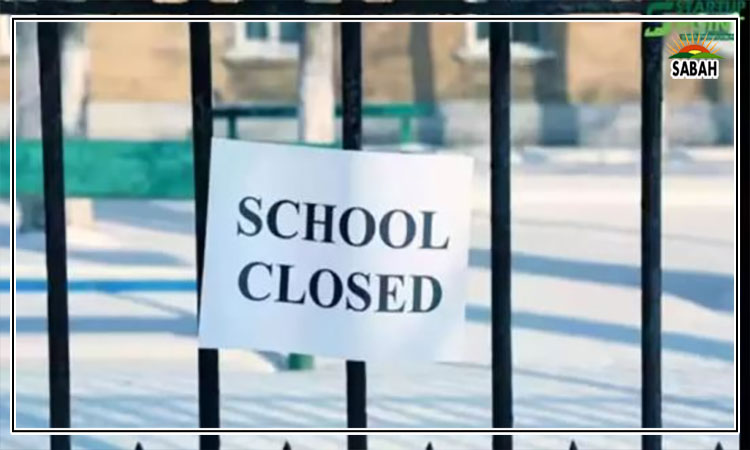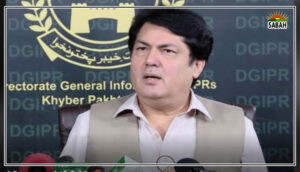Unsettled times…Khurram Husain
DID anybody else find it strange that the government would postpone the announcement of its own budget in order to schedule a trip to China that, it says, is for garnering investments?
A trip with that itinerary could easily have waited till after the budget, especially given that the budget is critical before an IMF deal can be finalised. Its especially puzzling given the trip took precedence over the National Economic Council as well, which is necessary to finalise the Economic Survey and then prepare the next budgets targets.
Perhaps there is nothing to it. There are many days still left in June after all, and the budget can wait till the middle of the month. Or perhaps there are priorities at play that are essential to sort out before the budget can be drawn up.
At this point, all we know is that excited announcements are beginning to pour in of an MoU here and an agreement there. Perhaps these will add up to something big in the days to come; but for now, we should be looking somewhere else to ascertain what the purpose of this trip really is.
What awaits the government upon their return is the real story. A cascade of demands is descending upon them from the organised interest groups in society. The textile industry is back to demanding what it calls a regionally competitive energy tariff, but which the rest of us call free handouts to the rich from taxpayer money. Thats the only way these guys know how to make money after all, so little surprise this is where their needle has been stuck for the past few years now.
We should be looking somewhere else to ascertain what the purpose of the China trip really is.
There is an interesting exercise to do here. Look at the biggest textile houses in the country and look at what the families that own them were doing 20, 30 or 40 years ago. You will notice something. Most of them were doing the exact same thing.
Now ask yourself, where is the innovation? Why should the state keep bailing out enterprises that refuse to innovate, refuse to look out, or otherwise invest in the next generation of opportunities that are always on the horizon? And, especially, why should the state do this when there is material evidence to suggest that the benefits of such schemes flow mostly to a small number of large controllers of capital?
There will be the issue of taxation. Early reporting suggests the IMF wants the removal of all exemptions and a GST applied on the sale of medicines. It also suggests there is a move afoot to raise the ceiling of how much tax can be applied on the sale of petrol and diesel, in order to allow more recovery from these. Banks could be looking at a further burden to carry, according to this same reporting, especially on the money they earn from interest on government securities.
Almost the entire business community is now demanding reductions in interest rates, especially after the May 2024 inflation number showed a much slower pace of increase in the CPI basket than was expected. The government itself is asking for the same. And the State Bank has a monetary policy announcement scheduled for next Monday. A failure to cut rates would leave a burden of hundreds of billions of rupees for the government to meet in their revenue target instead, to meet the debt service bill that will come with high interest rates.
Perhaps this is a good time for those running the government to learn a lesson regarding the printing of money to pay their bills. What they are paying in debt service costs today is the real value of the liquidity they waste. This can be a hard thing to understand while they are busy pumping the economy full with printed money to cover their fiscal deficit. Such actions inevitably have costs.
That money has to either be put to productive use (which it rarely is), or it shows up in consumption (which it inevitably does), from where it drives exchange rate pressure and domestic demand. Both are inflationary. If the government doesnt like paying the cost of its debt servicing bill, it should learn to appreciate the value of the liquidity it throws around rather carelessly, and understand that doing so has steep costs for the people.
There is the matter of arranging rollover commitments from bilateral partners for all loans maturing during the IMF period. Whether this involves extending maturities or only written commitments of rollovers is not known at this point. Either way, it is going to be serious business. Perhaps this is the real agenda of the China trip, and why it had to take priority over the budget.
Faced with a formidable agenda on the economic front negotiating with vested interests at home, bilateral lenders, keeping financial market sentiments on an even keel the government is increasingly looking rickety and at risk of losing a wheel.
Too many friction points are emerging that bear down on decision-making. How empowered will the finance minister be to make his decisions? That huddle at Jati Umra, during which it is said Shehbaz Sharif in passing referred to his older brother Nawaz Sharif as the PM, signified the political pressures, as well as the splits, within the ruling party regarding the drawing up of budget priorities.
This is a heavy agenda. And much of the heavy lifting remains to be done. Instead, the prime minister goes off to China with a large delegation of businessmen and cabinet ministers to try and secure investment deals. Or so we are told. From how things are shaping up, it increasingly looks like they will be making up their reform road as they go along, notwithstanding the various advisory committees they have.
Courtesy Dawn












